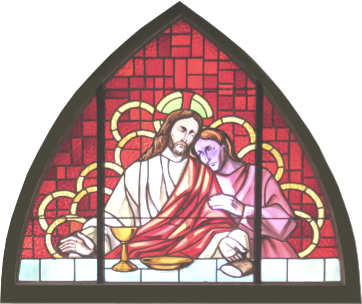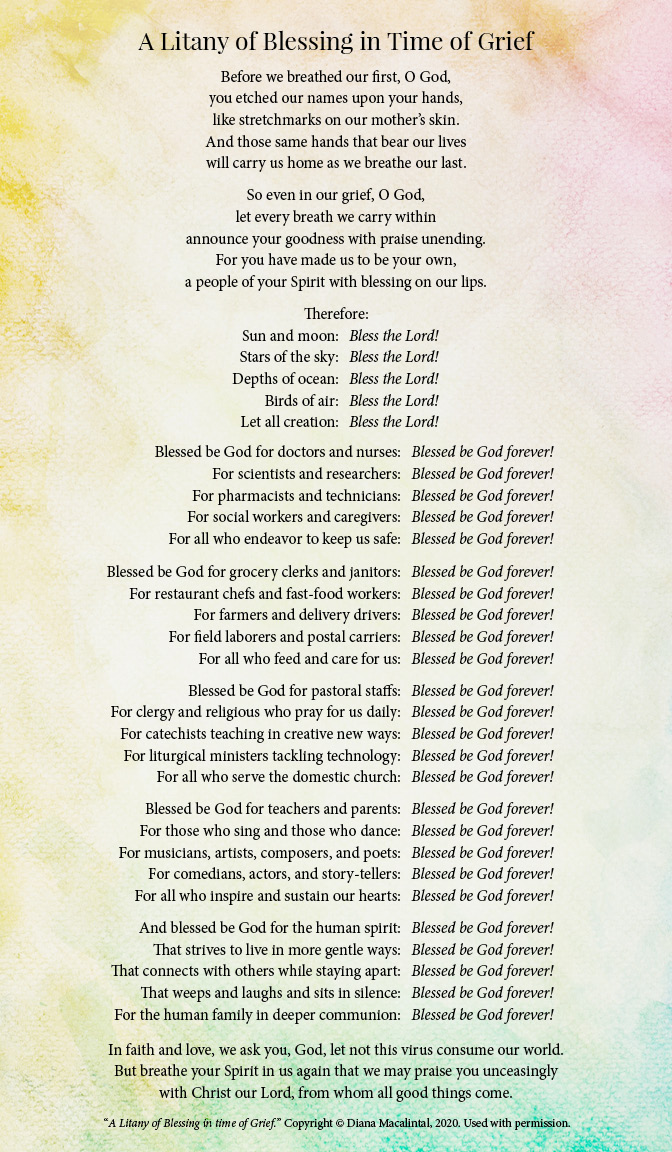The serious restrictions brought about in response to the pandemic began as we entered into the season of Lent. Three months later, as we return to Ordinary Time, we are starting to see the easing of restrictions. Last Sunday and this coming Sunday, Mass is being celebrated in many of the churches throughout the Archdiocese with up to 10 people present. That will rise to 30 persons on the weekend of June 13/14, with the prospect of those numbers rising as we show that we are able to celebrate the Eucharist and gather congregations without jeopardizing the health of those attending. There is reason to be grateful that faith communities have been heard. After not being included in the Saskatchewan Reopening plans, heads of faith communities gathered by videoconference, wrote to the Premier, and met with the leader of the opposition. Two extraordinarily gifted members of the Covid response leadership team were assigned by the provincial government to work with us, and this led quickly to the publication of directives for faith communities, and an easing of restrictions. The meetings are continuing, and we can expect further steps to be taken as early as next week. I take this opportunity to express our thanks to those we have had the opportunity to work with. Meanwhile, our Archdiocesan working group is diligently thinking through the implications of these new directives for our parishes. We continue to ask for your patience, perseverance and prayers.
Ordinary time is a beautiful season, because God has blessed our ordinary lives in extraordinary ways. The mystery of God’s presence in the ebb and flow of our daily lives is a source of wonder and joy which never grows old.
But events put in motion by the killing of George Floyd in Minneapolis last week have turned our attention elsewhere, and I would like to offer a few reflections in that regard. Our neighbours to the south are in some ways the most advanced nation in the world; but they are also a society deeply divided, with an embedded racism that is deeply destructive. Archbishop José Gomez, the President of the U.S. Conference of Catholic Bishops, opened his statement of three days ago with these words: “The killing of George Floyd was senseless and brutal, a sin that cries out to heaven for justice. How is it possible that in America, a black man’s life can be taken from him while calls for help are not answered, and his killing is recorded as it happens?”
The days following this tragedy have given rise to protests and riots, to acts of generosity and to acts of aggression. A light is being shone on many things, among them: how racism can lead to violence; and how racial injustice gives rise to inequalities in terms of poverty, incarceration rates, access to quality education and to health care, family breakdown, and other experiences of marginalization. We are hearing an outcry against all of that, and we are witnessing a backlash against protestors, and a stifling or distorting of those who cry out for justice.
As church we are called to stand in solidarity with all those who suffer, all those who yearn and actively work for a just society. Non-violent protests against injustice are a powerful way to bring about change, and the life and teaching of Jesus give witness to peaceful but costly ways to transform situations of injustice. It is above all in his death on the cross – which was a death by asphyxia – that the Lord ultimately witnessed to how the deepest transformation is brought about by God. George Floyd too died by asphyxiation, and the Lord who invites us to stand with the crucified in our day summons us to solidarity.
The polarization and embedded racism of American society brings forth lament from us. But here in Canada, here in Saskatchewan, we too struggle with an embedded racism. Why is it that our Indigenous people are on the losing end of so many societal indicators of well being – education rates, incarceration rates, health struggles, economic struggles, children taken from their parents, suicide rates? Why is it that these injustices persist? Why are we so slow to walk with our Indigenous Peoples, to stand with them in their struggle for justice, to address and to root out the seeds of racism? How is it that our churches, inspired by the Gospel of the crucified Christ, are so often blind to the suffering and injustice, humiliation and wounds of our sisters and brothers? Those are questions that should shape our agendas and draw on our best energies and resources, in our churches, and in our society, going forward.
Years ago I had the privilege of studying the writings, speeches and life of Martin Luther King Jr. Grounded in the Gospel, he points a way forward for the people in the United States, past and present, and for us too. King noted that one who passively accepts evil is as much involved in it as one who perpetrates it. The civil rights movement he led sought to bring change, but to bring it in a non-violent way. He noted, “I’ve seen hate on the faces of too many sheriffs…, too many Klansmen of the South to want to hate, myself…. Hate is too great a burden to bear.” “Hate begets hate; violence begets violence; toughness begets a greater toughness. We must meet the forces of hate with the power of love.” But that love was not to be passive. Love never rests easy when people unjustly suffer.
One last quote from Martin Luther King Jr., which speaks to us powerfully today, in Saskatchewan as in Minneapolis; in the church as in society. He writes, “Our loyalties must transcend our race, our tribe, our class, and our nation; and this means we must develop a world perspective…. the judgment of God is upon us, and we must either learn to live together as sisters and brothers, or we’re all going to perish together as fools.”
I trust and pray that the God of all creation won’t let that happen; but that same Lord and God summons us to remove all hate from our hearts; to love and walk with those in greatest need; to stand up for justice, to seek peace, so that our lives witness to a Gospel-inspired way of living together. Now is the time to learn how to transform our lives, our churches, our society, that we might truly reflect the Gospel we proclaim and the Kingdom Jesus came to bring.
God bless you all on this journey.

